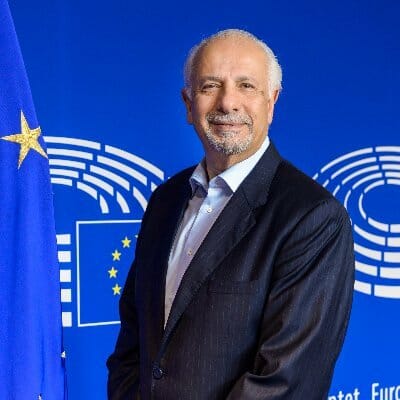Countries in Asia, such as South Korea, China and Singapore, are “lightyears ahead of the UK and the rest of the world when it comes to 5G infrastructure deployment,” said Dinesh Dhamija, former MEP for the Liberal Democrats and serial business entrepreneur, during an interview with Information Age.
The need for 5G infrastructure deployment: remote working and SME support
The ongoing coronavirus pandemic has seen an unprecedented rise in those working from home. And this trend will likely continue following the period of isolation, predicted at approximately 12 weeks — how we interact and work will change.
If remote working becomes the norm or significantly more popular following the impact of coronavirus, a strong 5G infrastructure can facilitate instantaneous communication, which is critical for a remote working environment.
“No matter where you are, if you’re working from home, you’re going to need no or very low latency. 5G offers this,” said Dhamija.

5G infrastructure also offers speed, which can help incubators and SMEs innovate and grow in an increasingly competitive environment.
In Europe, there are approximately 25 million SMEs, which make up the majority of all business — they are the backbone of the economy. In the UK, there were 5.9 million SMEs in the UK in 2019, which represented over 99% of all businesses.
“The government needs to help these businesses by pushing telecom providers, like Vodafone or EE, to ramp up their 5G infrastructure deployment efforts,” continued Dhamija.
The reason he said this, is not because of pandemics. it’s because countries in the East are lightyears ahead of the UK and the rest of the world.
“In South Korea, the whole country has been covered in 5G technology from the end of 2019. We are about three years behind this, which in internet-terms is 21 years. If we don’t change our strategy around 5G then a lot research, incubators and others will move to the East, because they have strong 5G infrastructure — the UK can’t have that, we need to incubate our own unicorns in our own research facilities,” he added.
5G use cases: important for acceptance of the new digital infrastructure
Speeding up 5G deployment: a public and private partnership needed
5G has the potential to add tremendous value to the global economy.
A study from McKinsey Global Institute, found that the technology could increase global GDP by between $1.2 trillion and $2 trillion by 2030. This is a fairly modest prediction. Another research report by ReportsnReports, estimates that the 5G market will grow from $31 billion in 2020 to $11 trillion by 2026.
“We desperately want the government to come in and not only push the service providers that cover the country, but also instigate a public/private partnership, which will speed up 5G infrastructure deployment,” said Dhamija.
A public and private partnership is necessary because deploying 5G infrastructure is incredibly costly. “But, the government needs to do something to incentivise the UK’s telecom providers and I predict they would great return on an ‘investment’ within two to three years,” he continued.
The reason for this is that once businesses and people see the advantages of 5G, they’ll never go back to 4G or 3G.
Currently, this type of partnership is not being discussed, because the UK government is focused on the ‘Last Mile’ — ensuring everyone in the UK has fast broadband (Fibre to the Home) speeds.
However, Dhamija suggested that skipping this step and deploying 5G infrastructure will solve the problem — “the zero to very low latency of 5G will mean that everyone in the country will have access to very fast internet speeds,” he said.
Failure to do this will likely see an exodus of innovative UK SMEs, incubators and individuals to countries that can provide the speed of 5G infrastructure, because they’ll be able to innovate faster with great terms from trade development boards.
There’s a competition for goods, people and services taking place all around the world and the UK needs to invest in 5G to make sure the country can actually compete and retain our best people and businesses.
The convergence of technology, especially mobility, must be secured
In order to compete
In order to compete, Dhamija suggested that the UK should embrace partners like Huawei, despite challenges from the US.
“They’re trying to dissuade us from working with Huawei, but they haven’t provided evidence that they are ‘spying’ on us and they don’t have an alternative ‘product’ that we can utilise to speed up our 5G deployment ambitions,” he said.
Any government using a foreign company to install anything, including 5G infrastructure, will do rigorous checks to ensure there are no security flaws or backdoors, which is what the NCSC did when reviewing Huawei’s position in the UK.
“The main point here is that we should be upping our investment and utilising partners to ensure that the population and businesses are given the best tools to keep up with and compete against the rest of the world,” concluded Dhamija.
[emailsignup]








